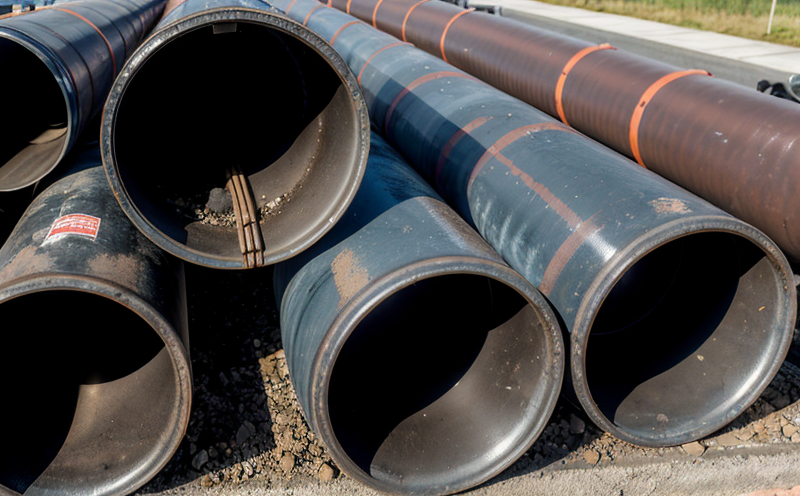JIS K 6741 Bending Testing of Plastic Pipes
The JIS K 6741 bending test is a critical procedure used to evaluate the mechanical properties and performance of plastic pipes under bending stress. This test is essential for ensuring that pipes meet quality standards, enhance durability, and maintain structural integrity in various applications.
During this test, pipes are subjected to a specific degree of bend, typically around 180 degrees, to determine the flexural strength and flexibility of the material. The test simulates real-world conditions where plastic pipes may experience bending stress due to installation or operational factors. Compliance with JIS K 6741 is crucial for industries relying on plastic plumbing systems, irrigation networks, and other infrastructure.
The test procedure involves precise specimen preparation, which includes cutting the pipe into a specific length and ensuring that it has the appropriate wall thickness and diameter to meet the standards. The bending machine used must be capable of applying controlled forces, allowing for accurate measurement of the deflection under load. This ensures consistent results across different specimens.
The acceptance criteria for JIS K 6741 are based on the maximum allowable deflection at a specific load point. If the pipe fails to meet these standards, it may indicate issues with material quality or manufacturing processes that could lead to premature failure in use. By adhering to these standards, manufacturers can ensure consistent product performance and reliability.
Understanding the importance of this test extends beyond compliance; it plays a vital role in ensuring safety and longevity of infrastructure projects. For instance, in construction applications, improperly tested pipes may lead to leaks or structural damage. In irrigation systems, flexible yet robust plastic piping is essential for efficient water distribution without compromising on durability.
The JIS K 6741 bending test not only assesses the physical properties of plastic pipes but also provides valuable insights into material behavior under stress conditions. This information aids in continuous improvement of manufacturing processes and design considerations for future products.
Why It Matters
The JIS K 6741 bending test is indispensable for several reasons:
Safety Assurance: Properly tested pipes reduce the risk of accidents and ensure public safety.
Durability Enhancement: By identifying weaknesses early, manufacturers can enhance the longevity of products.
Compliance Verification: Ensures that manufactured items meet international standards, facilitating trade and export.
Quality Control: Consistent testing helps in maintaining high-quality standards throughout production processes.
Product Performance: Reliable bending tests contribute to better performance under various environmental conditions.
Risk Mitigation: Identifying potential issues early can significantly reduce long-term costs associated with product failures and recalls.
Benefits
The benefits of JIS K 6741 bending testing extend across multiple dimensions:
Enhanced Reliability: Ensures that the plastic pipes can withstand the stresses encountered in real-world applications.
Cost Efficiency: Early detection of defects through rigorous testing reduces the need for expensive repairs or replacements.
Customer Satisfaction: Providing products that meet strict standards enhances customer trust and satisfaction.
Innovation Support: The test results can guide further research and development, leading to more advanced materials and designs.
Customer Impact and Satisfaction
Implementing JIS K 6741 bending testing has a profound impact on customer satisfaction:
Reliable Performance: Customers receive products that perform as expected, reducing the likelihood of service interruptions.
Precision Manufacturing: Manufacturers can ensure consistent quality, leading to repeat purchases and loyalty.
Compliance Assurance: Meeting international standards gives customers peace of mind knowing their investments are backed by rigorous testing protocols.





